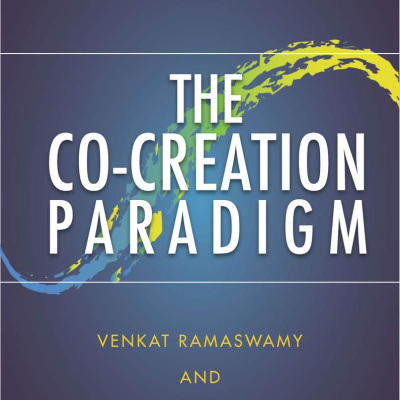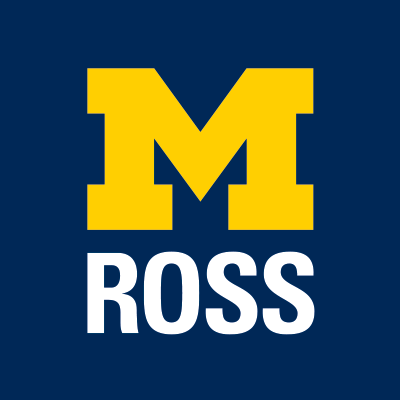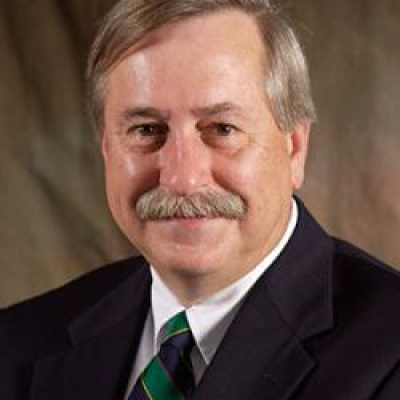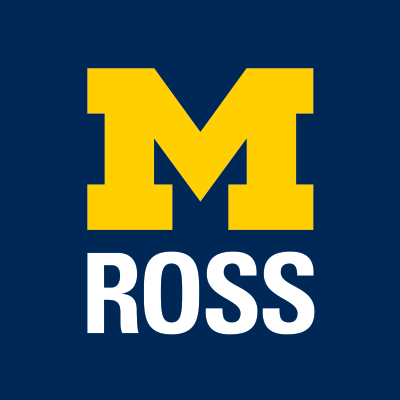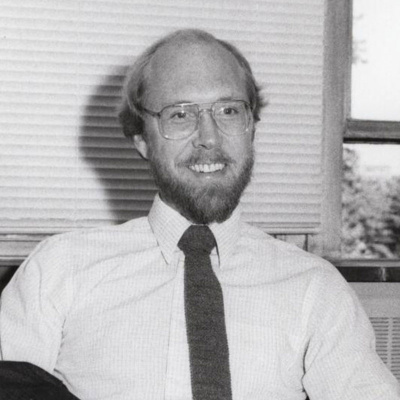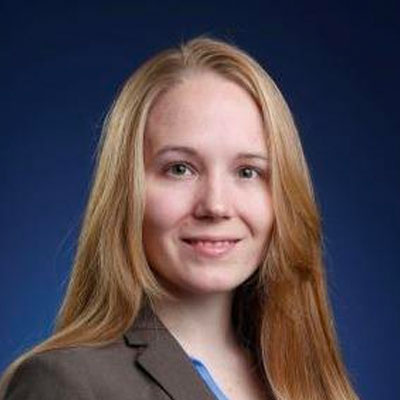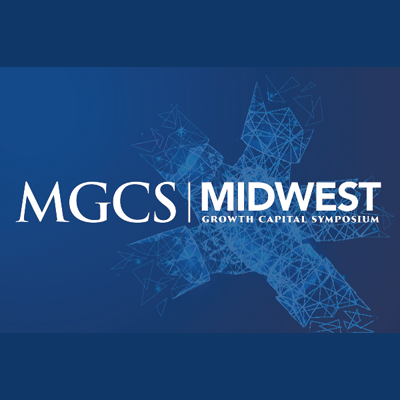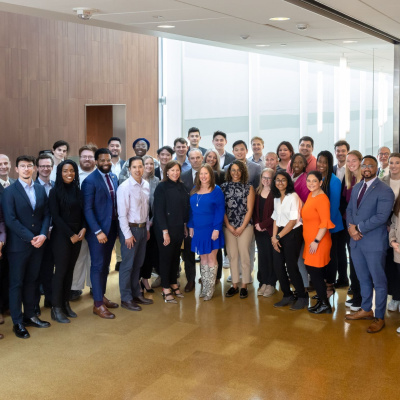Explore the faculty research, thought leadership, and groundbreaking philosophies that established Michigan Ross as one of the world’s top business schools.

Associate Professor Anant Nyshadham co-founded and co-directs the Good Business Lab, a labor research and innovation lab whose work to identify workplace tools and interventions to deliver both impact to workers and returns to employers has quickly expanded across four continents over the last decade. Designed and tested through rigorous randomized controlled trials in real-world workplaces, GBL has developed several tools for rapid and broad scale. GBL's worker voice tool, Inache, has been proven to improve worker retention, reduce absenteeism, and increase worker productivity in manufacturing settings. Similarly, the tool Pratibha is a tablet-based screening and training tool for frontline supervisors that measures and addresses soft skill deficiencies and has been proven to improve the retention of supervisors and dramatically and sustainably raise the productivity of workers in factories. The Bill and Melinda Gates Foundation recently awarded GBL a multi-million dollar grant to scale these tools to more than a million workers in the next two years.

In 1998, Professor David Hirshleifer of the Michigan Business School, and two co-authors, published a paper titled "Investor Psychology and Security Market Under- and Overreactions." This paper has been widely recognized as the first explanation of the seemingly contradictory behavior in asset prices (under- and overreactions to different news) based on two well documented behavioral biases. The biases outlined in the paper are overconfidence (regarding the precision of one's private information) and biased self-attribution. The former leads to well documented evidence of long-term overreaction (price reversals), while the latter causes underreaction (momentum) in the medium term. This paper was the first widely recognized paper in finance based on departures from rational behavior and provided a compelling explanation for seemingly anomalous behavior in asset prices.

"Co-creation as a revolutionary paradigm was introduced by Professors C. K. Prahalad and Venkat Ramaswamy in a series of articles published between 2000 and 2004 and an award-winning book, The Future of Competition. Their work provided a new frame of reference for jointly creating value through networked environments of increasingly digitalized experiences, going beyond goods and services, and called for a process of co-creation -- the practice of developing offerings, experiences, and unique value through ongoing interactions with customers, employees, managers, financiers, suppliers, partners, and other stakeholders. Through their work, they envisioned an individual and experience-centric view of interactive value creation and innovation.
Starting in 2005, the explosion of digital and social media, the convergence of technologies and industries, embedded intelligence, and information technology-enabled services enabled enterprises to build platforms for large-scale, ongoing interactions among the firm, its customers, and its extended network. Ramaswamy's work argued that success lies in connecting with people's experiences to generate insights and change the nature and quality of interactions. He also called for co-creation from the inside out of enterprises and their networks, as much as co-creation from the outside in, and for leaders to co-create transformative pathways.
In 2014, Ramaswamy published "The Co-Creation Paradigm", which combined the core ideas of co-creation with a call to see, think, and act differently in an interconnected world of possibilities and complex challenges to co-create a better future as individuals."

William Davidson (1922-2009) was a successful global business leader and alum of the University of Michigan. He understood the value of the private sector to empower people around the world.
After the fall of the Berlin Wall, Davidson recognized the value of educating and empowering economic decision-makers in formerly centralized economies with the tools of commercial success. Davidson partnered with U-M to create a unique institute providing consulting and training services to nonprofits, corporations and small businesses in emerging markets with the goals of economic growth and social progress. Since 1992, the William Davidson Institute (WDI) has served as a platform to introduce students to the challenges and opportunities facing firms in low- and middle-income countries.
Over its history, the Institute has supported U-M student teams, totaling more than 1,800 students, who collaborate with business and nonprofit partners to provide analysis and develop solutions built upon the foundation of basic business principles. To ensure ongoing access to current and relevant business education, WDI Publishing also produces and distributes high-quality, cutting-edge business cases and other teaching materials, with more than 700 cases in its collection, reaching approximately 800 universities and institutions globally.
The Institute is also home to NextBillion.net, an online platform for discussing business models and innovations that address development challenges in low- and middle-income countries. The platform reaches more than 25,000 readers a month.
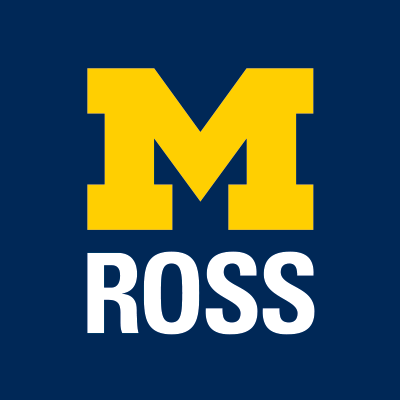
While concerns regarding corporate financial misreporting have persisted since the early 1900s, there were no rigorous methods that academics, market participants, and regulators could use to assess the accounting quality or the potential for financial misreporting when looking at a set of financial statements. Faculty members Patricia Dechow, Ilia Dichev, and several of their co-authors in the Michigan Accounting group developed several widely used models that allow users to assess the financial reporting quality of a set of financial statements and, more importantly, allow users to detect potential earnings management. These models and adaptations of these models continue to be used today, both in research and in accounting courses.

Michigan Business School Professor and Erb Institute Faculty Director,Tom Gladwin, pioneered the field of business sustainability with his concept of a "science of sustainable enterprise." It was one of the first scholarly frameworks to bring together the social, environmental, economic, and organizational aspects of competitive companies that likewise are managed to explicitly create value for society. With groundbreaking publications like "Shifting Paradigms for Sustainable Development: Implications for Management Theory and Research" and "Beyond Eco-Efficiency: Towards Socially Sustainable Business" in the 1990s, Gladwin dramatically expanded the scope of traditional management education and business leadership. Throughout his career, and his long-time partnership with the Prince of Wales's Business & the Environment Programme, Gladwin influenced hundreds of CEOs and other top corporate leaders to think deeply about, and take action on, the threat and the opportunity of sustainable business.

Launched in 2014 by Michigan Ross and the Zell Lurie Institute for Entrepreneurial Studies, the Desai Accelerator is dedicated to advancing U-M alumni entrepreneurial ventures. The Accelerator provides the physical infrastructure, financial resources, and mentorship to support alumni startups as they reach the critical phase between early-stage development and the point at which they seek external investors.
At Desai Accelerator, startups can access a wide network of experienced advisors, including entrepreneurial mentors, industry experts, venture capitalists, angel investors, and other business leaders. To engage students, Desai offers internships for undergraduates and graduates from all U-M schools and colleges. The Desai Accelerator program runs an annual cohort that supports passionate entrepreneurs as they advance their early-stage ventures. Startups accepted into the program receive funding, tailored mentorship opportunities, national visibility, and other resources to support their success.
The Desai Accelerator has invested more than $1 million in 44 startup ventures on behalf of the University of Michigan and has engaged 75+ student interns. Funding and support for the Accelerator are provided by the Desai Sethi Family Foundation, the William Davidson Foundation, and the Wadhams Family Foundation.

As the worlds of trade and culture were globalized in the 1980s, consumers worldwide saw standardized global brands enter and grow in their local markets, displacing local brands that had been dominant for decades. But what were consumers seeing in these global brands, and why were consumers switching to them? How could local brands fight back? These timely and important questions were addressed in a series of research papers by Michigan Ross Professor Rajeev Batra and his co-authors from 1999 through 2019. They showed that if consumers perceived brands as being global, they assumed these brands were of higher quality, capable of bestowing more prestige and status to their buyers, and would bring these buyers closer to the imagined lifestyles of consumers in the home countries of these brands. These papers have been cited over 6,000 times, have been nominated for and won multiple best-paper awards in journals and societies of international marketing, and have been included in lists of the 10 papers in the last 30 years that have made the most contribution to the international marketing literature. Today, as the lure of globalization seems to be receding and local brands seem to be winning again, this work highlights the tensions and trade-offs at play.

The marketing faculty at the University of Michigan has, over the decades, made several foundational contributions to the area of consumer behavior. Professor Joseph W. Newman, who was a marketing faculty member at the Michigan Business School from 1949-51 and again from 1965-73, helped greatly through his books and research publications to deepen the impact on the marketing discipline of concepts including economics and decision theory, psychology, sociology, and anthropology, especially through the qualitative research techniques of motivational research. Along with his doctoral students, he published highly impactful research on how consumers gather and use pre-purchase information. He also published research on customer satisfaction and dissatisfaction. For these and other contributions, he was named a fellow of the Association of Consumer Research in 1990, its highest honor. In the decades since, the marketing faculty at Michigan Ross has continued to make many more notable contributions to our understanding of consumer behavior.
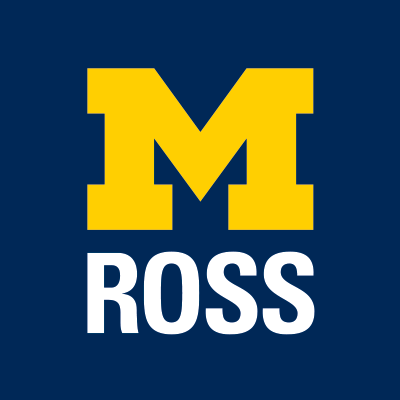
In 1999, former Michigan Ross finance faculty member Josh Coval co-authored a paper that is among the top 50 most-cited papers in finance. The paper shows one of the most intriguing patterns in individual behavior. The strong bias in favor of domestic securities is a well-documented characteristic of international investment portfolios, yet this paper shows that the preference for investing close to home also applies to portfolios of domestic stocks. Specifically, U.S. investment managers strongly prefer locally headquartered firms, particularly small, highly leveraged firms that produce nontraded goods. These results suggest that asymmetric information between local and non-local investors may drive the preference for geographically proximate investments, and the relation between investment proximity and firm size and leverage may shed light on several well-documented asset pricing anomalies.

Michigan Ross is known for being one of the first places to promote and provide rigorous evidence contrary to the efficient market hypothesis. The work of Professor Victor Bernard, a faculty member from 1982-1995, played a huge role in the beginnings of literature on market inefficiency. His work in valuation and fundamental analysis was the first to provide evidence that investors could not fully process information in earnings releases. The inefficient markets argument was further supported by the work of Professor Richard Sloan, a faculty member from 1997-2007. Bernard demonstrated that market participants treat the two basic components of accounting — cash and accruals — in an irrational way when making their valuation of corporate securities. This behavior became known as the "accrual anomaly." Bernard's work twice won the Notable Contribution to the Accounting Literature Award.

In her research published in the American Economic Review, the Review of Economics and Statistics, the Journal of Human Resources, Health Affairs, and other outlets, Professor Sarah Miller has used quasi-experimental methods to evaluate whether receiving improved access to health care in utero, in early childhood, and throughout childhood improves outcomes in adulthood. Miller and her co-authors have found that children who have received eligibility for health insurance through the Medicaid program have improved outcomes on a number of dimensions, both in terms of health and economic outcomes. Additionally, they found that the children of those children who had better access to healthcare in childhood were healthier at birth. This suggests a cycle in which investing in children's health today can have multigenerational benefits that allow the government to fully recoup the cost of its initial investment in the form of higher tax payments and lower spending on welfare programs. Miller's research has been discussed in numerous high-profile news outlets and has strongly impacted how academics and policymakers view investments in children. Furthermore, her papers have been cited nearly 500 times.

Originally launched by Michigan Ross Professor David Brophy and now organized and run by the Zell Lurie Institute for Entrepreneurial Studies, the Midwest Growth Capital Symposium began as an opportunity to showcase innovative Michigan ventures seeking funding and connect them with venture capitalists, angel investors, industry stakeholders, and leaders from across the nation.
Today, the Symposium provides a platform for pre-selected Midwest companies to present their business ideas and investment opportunities. These companies span various sectors, such as life sciences, healthcare, technology, food and agriculture, and energy. First held in 1980, the Symposium is the longest-running university-based venture fair of its kind, has gained recognition, and attracts attendees from across the country.

In their paper, “Crowdfunding the Front Lines: An Empirical Study of Teacher-Driven School Improvement,” Professors Samantha Keppler, Jun Li, and Andrew Wu conducted the first large-scale empirical test of the frontline improvement theory in K-12 schools. The theory, originating in automotive manufacturing, states that empowering front-line employees to identify organizational and process problems and implement solutions improves organizational performance and customer satisfaction. In this case, the team of Michigan Ross professors was interested in how teacher-identified problems in the classroom and crowd-funded solutions improved learning outcomes for K-12 students.
The team analyzed data on thousands of K-12 teacher projects on the largest teacher crowdfunding site, DonorsChoose. They found that one funded project (about $400 in value), on average, achieves a significant increase in the percentage of students scoring basic and above on all tested subjects in high school, as well as science and language arts in primary and middle schools. This effect translates to two-nine additional students moving up to at least a basic level of proficiency in the correlating subject. The effect of these projects is greatest in low-income schools, where funded projects, on average, move four-10 additional students to at least a basic level of proficiency in tested subjects.
From the textual analyses of the teacher's written statements about the impact of the projects in their schools, Keppler, Li, and Wu additionally learned that student academic performance is significantly better when teachers use crowd-funded money to improve knowledge retention, as a repeated learning tool, and to differentiate or personalize learning.
Due to the demonstrated impact of teacher-driven crowdfunded projects, DonorsChoose has partnered with eight states to spend COVID-19 education relief funding on teacher crowdfunding projects. To date, these partnerships have funded over $100 million of teacher projects from over 100,000 teachers, impacting over 10 million students.

The Dare to Dream grant program is an initiative by the Zell Lurie Institute for Entrepreneurial Studies. It provides funding to U-M students interested in exploring and pursuing entrepreneurial ventures.
The student grant program offers three different tracks targeted toward early-stage students looking to develop a business concept to integrate entrepreneurship into their academic studies, students who have already developed a business concept and are seeking to validate and assess the feasibility of their idea, and students who are ready to launch their ventures.

Expanding on his dissertation thesis, completed in 2003, Professor Paolo Pasquariello's powerful insight (published in 2007) demonstrates that financial contagion (the spread of a shock from one financial market to many) could occur due to the simple, and highly plausible, heterogeneous private information of speculators about fundamentals. Financial contagion is an increasingly common phenomenon of global concern, especially during financial crises. Importantly, Pasquariello's theoretical multi-market setting rules out all the more complicated explanations of contagion --- usual suspects such as correlated information and/or liquidity and portfolio rebalancing --- while linking it to some of the main features of globalization, the expansion of and access to international financial markets.







